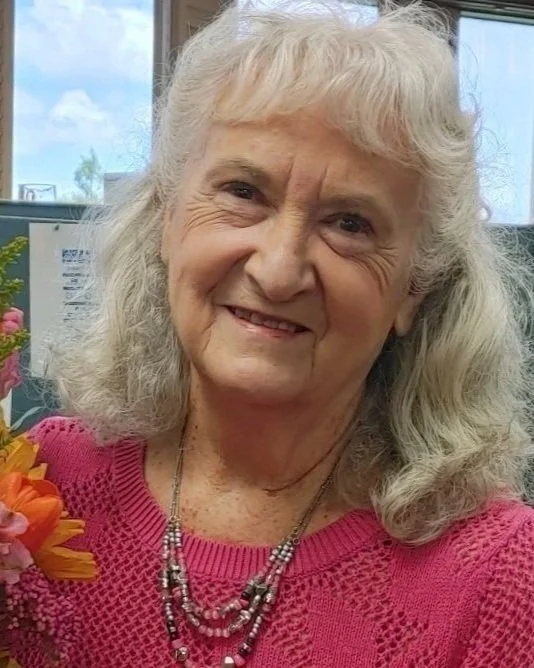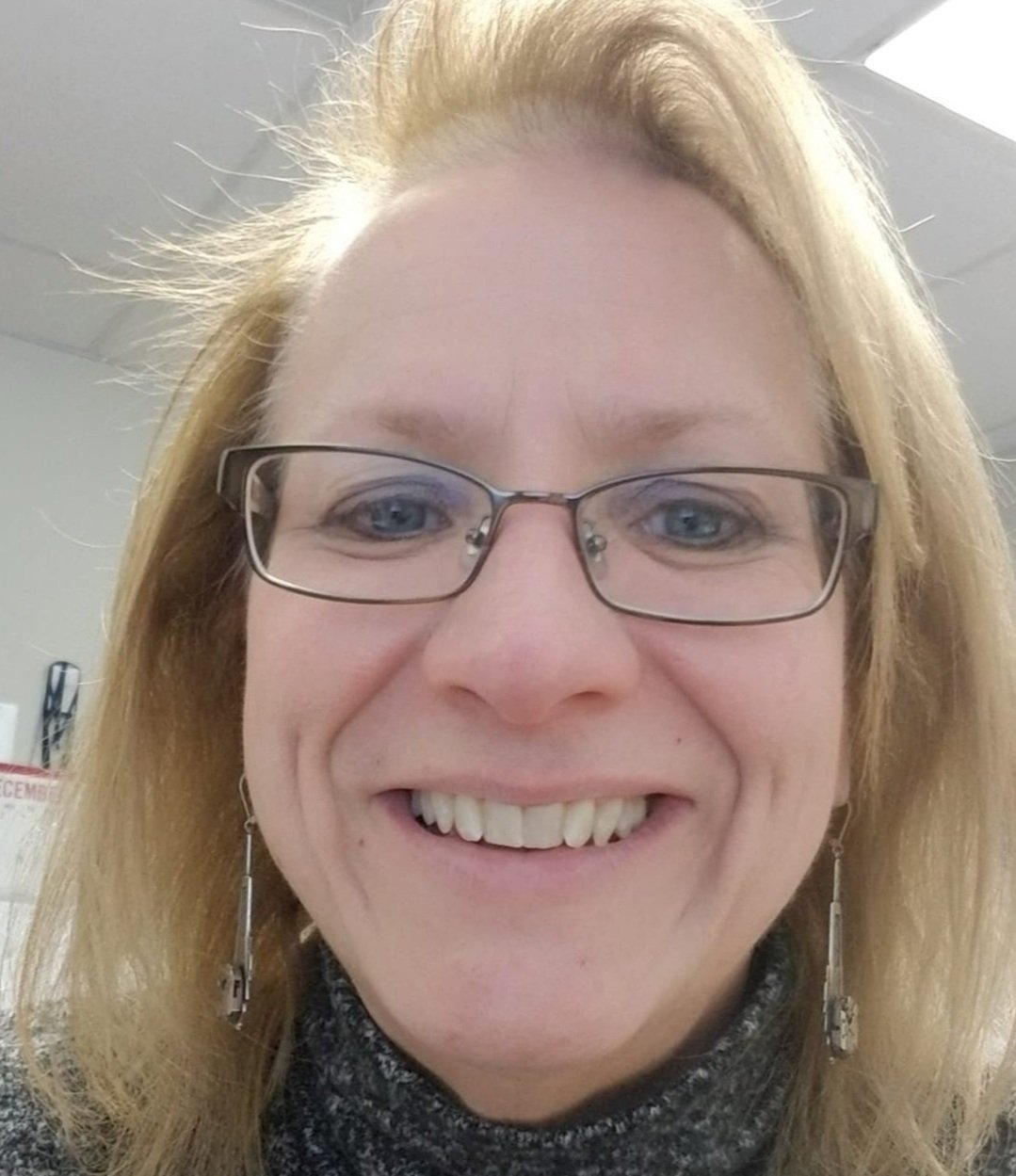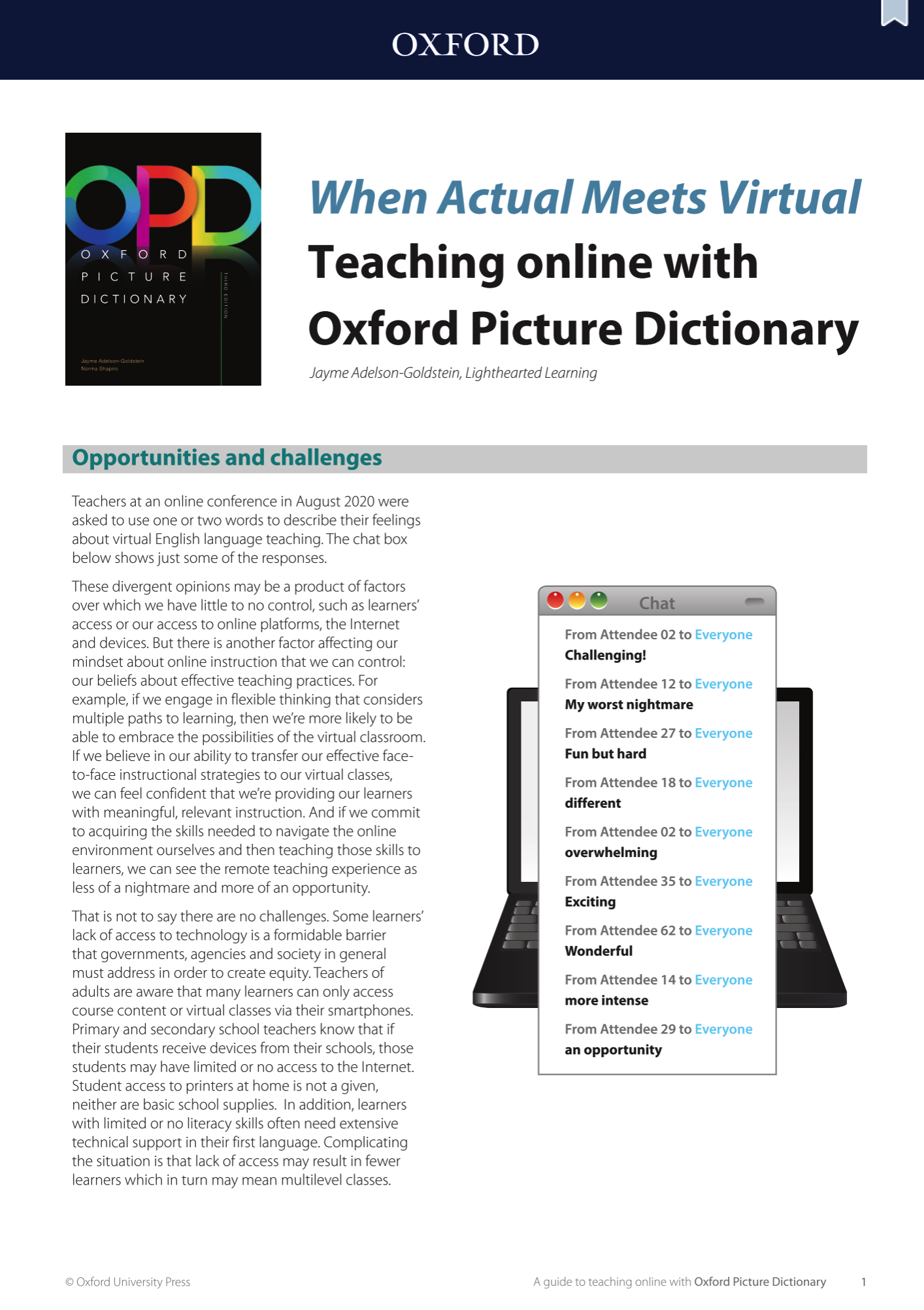Tools & Tips & Podcasts
“Tiny Videos” were created to help you support your learners using Zoom on iPhones. Android phones have a few more features such as being able to share a whiteboard and having a more robust set of annotation tools, including a text tool—which iPhones don’t yet have. (Do keep these Android phone differences in mind while listening…) Note: These videos were made with the 2021 version of Zoom. Zoom has added new features and these videos will be updated as time permits, but the basic concepts in each still apply. \_(^L^)_/
Topics so far are:
Oxford Adult ESL Conversations
"We really had no choice…we had to figure it out.”
Joy Lehman and Kristi Weisenburger, are English language teachers at the Milwaukee Area Technical College (MATC) in Milwaukee, Wisconsin. Kristi currently teaches English in virtual and high-flex environments to community students learning English, as well as students working towards GED, HSE, and college transfer. Joy works primarily with beginning English learners and is part of Milwaukee Area Technical College’s first group of Hyflex classes for ELLs. I first met Kristi and Joy during our time together on LINCS ESL Pro —an OCTAE/AIR project providing technical assistance to states looking to align their English language instruction to adult education standards and WIOA. (Workforce Innovation and Opportunity Act). When I heard that MATC’s English language program had moved to Hyflex instruction, I knew that Kristi and Joy would have a lot to share about this relatively new* way to manage instruction. In this conversation, they tackle the good, the not-so-great, and the odd of simultaneously teaching learners online, asynchronously, AND in person. (*as of this recording in January 2022).
A note on the varying sound quality: Pandemic supply chains being what they were… Joy’s and Kristi’s mics were not delivered in time, so we made do as all teachers do!!
You can’t Plan Last Year’s Birthday Party!
This thought-provoking and joyful conversation with Anthony Tassi was recorded in June of 2021. Anthony had several pithy insights on what it takes to pivot to a new way of serving our adult English language learners and immigrant families. Anthony is the CEO of Literacy Partners, an expert in health policy, and a two-time Emmy Award-winning creator of educational television for English language learners and Hispanic parents. In this conversation, we focused on remote instruction and the ways that Literacy Partners adjusted their model in order to reach learners who no longer had the option to meet and learn in person.
Beyond Resilience— Enthusiasm!
And a time to lift each other up…
During this conversation, Rebecca Barker shares her wit and wisdom as she describes the process ESL tutors and learners in Oklahoma’s Library Literacy program experienced during the Pandemic. Rebecca coordinates the process, reports, and technical assistance for literacy grants funded by the Oklahoma Department of Libraries. She also arranges training and identifies resources for ELL activities and coordinates a citizenship and immigration program. With previous experience as a local literacy program director, Rebecca has first-hand knowledge of local needs and challenges. She is a trainer, public speaker, and editor of LRO publications including Celebrating Our Journey, a collection of stories written by adult learners.
Identifying the Issues that
Motivate
Our Learners
This enlightening conversation with Andy Nash was recorded pre-pandemic and before the nationwide move to remote instruction, but Andy’s points couldn’t be more relevant to our work and our learners’ lives at this time. Andy is a Senior Advisor at World Education, Inc., where for over 20 years she has facilitated professional development projects at the local, regional, and national levels. Andy specializes in contextualized ESOL, standards-based instruction, and the integration of adult education with civic engagement. She has contributed to a variety of national projects on immigrant integration, teacher effectiveness, IET, and evidence-based ESOL.
Thriving in
Changing
Times
When MaryAnn Cunningham Florez and I had a lovely conversation in 2018 about ways to help support instructors and administrators alike thrive in changing times…who knew what was to come?! MaryAnn is Program Manager for Fairfax County (VA) Public Schools Adult ESOL Program. Her previous positions include Director of the Adult Education Professional Development Center of DC Learns, and assistant director at the National Center for ESL Literacy Education. In this conversation MaryAnn offers insights gleaned from her wealth of experience working with adult ESOL practitioners across the US.
Digital Literacy (True then, truer now!)
Step back in time to this 2018 (prescient) conversation with Dr. Kathy Harris on our learners essential need for digital skills. Dr Harris is a member of the literacy, language and technology research group and teacher of teacher education courses in the department of applied linguistics at Portland State University. She creates professional development materials for the adult ESL teachers and national projects including ELLU and ESL pro, and teaches adult ESL including digital literacy and ESL to adult learners with limited or interrupted formal education.
ESL Civics Integration
Listen in as Lori Howard and I discuss Integrated English Literacy and Civics Education (IELCE). IELCE enables learners to acquire skills for English literacy as well as skills that help them be effective workers, parents, and community members. Lori also has a 2021 article in the COABE journal on the related topic of California EL Civics: Seizing the Opportunity to Integrate Performance-Based Assessment that you can read here.
Lori is an ESL Consultant, Teacher Trainer, Author and Program Specialist for the Comprehensive Adult Student Assessment System (CASAS).
Highlighting Learner
Autonomy in Adult ESL
What does learner autonomy mean in the context of the Adult English language classroom? Dave Coleman, always ahead of the curve, spent time with me in 2017 discussing the importance of learner voice and choice.
Dave is a local and state ESL leader in the areas of professional development, technical assistance, curriculum development, and adult education advocacy. He is a national educational consultant and trainer for the American Institutes for Research (AIR) and LINCS. He is currently the Los Angeles USD Division of Adult and Career Education ESL School Support Team leader.
Rigor for beginning learners?
Absolutely!
When the field identified the need for increased rigor in adult education in 2014-2015 many adult English language instructors said, Sure, but not for my beginners! Carolyn Nason said, Why not?!
In our conversation, Carolyn addresses the possibilities for rigorous, engaging instruction that meets learners’ needs and moves them towards college and career readiness. Carolyn is the Instructional Chair of the Department of ESL at Milwaukee Area Technical College and participated in the LINCS ESL Pro project from 2015-2016. Carolyn also has a blog post with more details and examples. Be sure to check that out, too!
SCAFFOLDS TO SUCCESS -
WORKING WITH THE ELPS
Dr. Patsy Egan, a member of the expert panel for the creation of the English Language Proficiency Standards joins me to discuss how the Adult ESL field has been affected by the implementation of the College and Career Readiness and English Language Proficiency Standards and how teachers can use them as a resource to better serve their students’ needs.
Patsy Egan, PhD, is the director of ATLAS, ABE Teaching & Learning Advancement System, housed in the Hamline University School of Education in St. Paul, Minnesota. As a subject matter expert on the OCTAE ESL Pro project, Patsy authored the Companion Learning Resource on Meeting the Language Needs of Today’s Adult English Language Learner. Patsy was also involved in the OCTAE-sponsored initiative for the new English Language Proficiency Standards and the Teaching Skills That Matter project.
When Actual Meets Virtual: Teaching the OPD online
This booklet outlines the benefits and challenges of virtual ESL instruction, especially at the beginning level, and offers numerous tips and strategies for remote instruction, including a simple annotation process that helps you adjust your F2F lessons to remote instruction.













